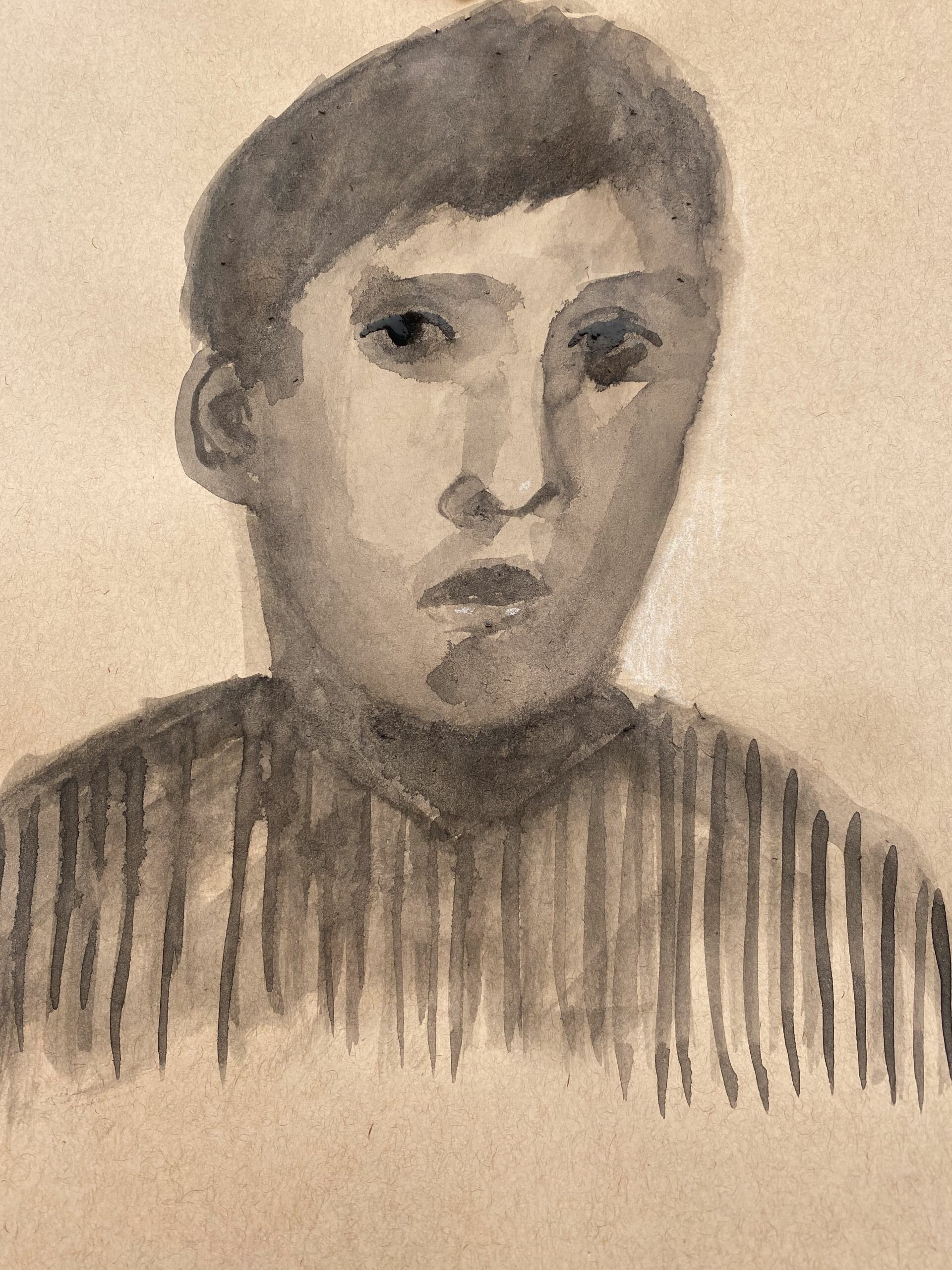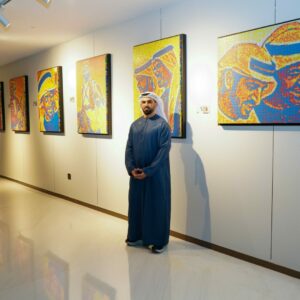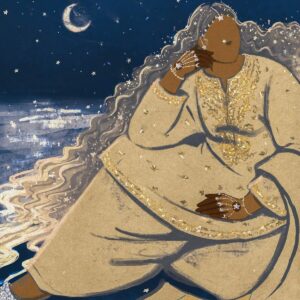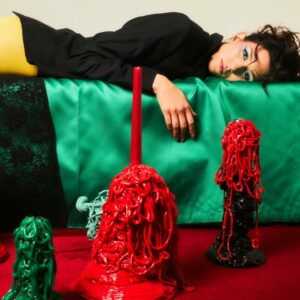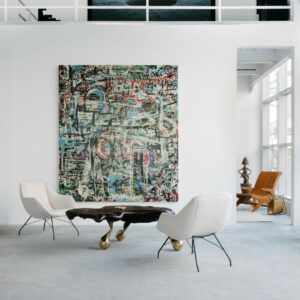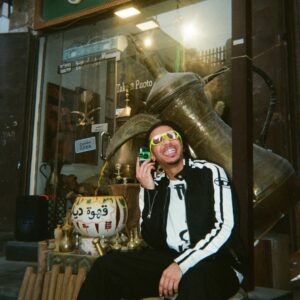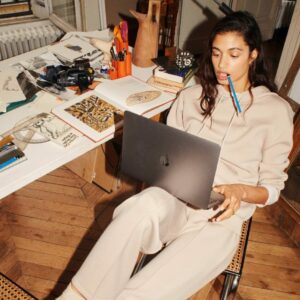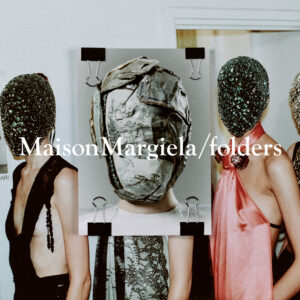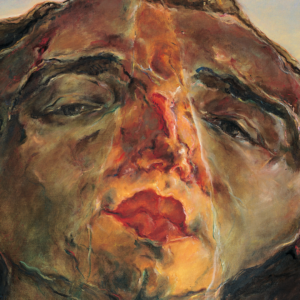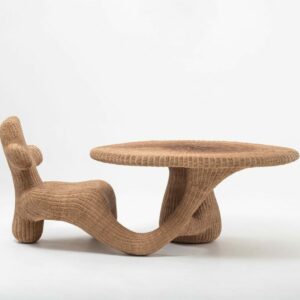In a landmark moment for both artist and nation, Malak Mattar (Instagram) has become the first Palestinian to hold a solo exhibition at London’s Central Saint Martins. For Mattar, this is more than a personal achievement, it’s a declaration of presence. “It’s an emotional moment, not just for me, but for Palestine,” says artist. “Being the first Palestinian artist to have a solo show at Central Saint Martins is about more than art; it’s about visibility and resistance. I’m proud to bring our stories and resilience into this space.”
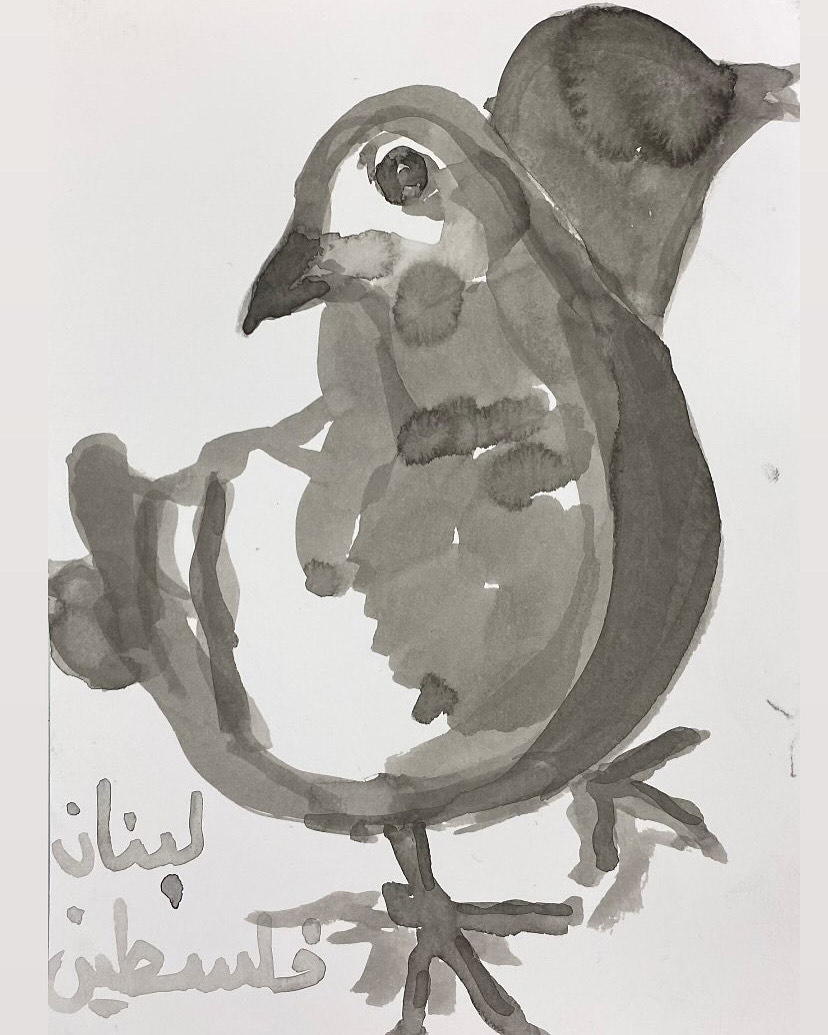
Born and raised in Gaza, Malak Mattar began painting during the 2014 war, seeking refuge in expression. Her work has since evolved into a rich visual archive of memory, pain, and quiet power. “Painting is my language of resistance,” she explains. “I started during the 2014 war in Gaza as a way to survive emotionally and speak when words failed.”
The exhibition itself, deeply personal and politically resonant, unfurls like a diary. “The exhibition moves through memory, loss, and resistance, but also healing,” she reflects. “I wanted to create a space that carries the emotional weight of Gaza while also showing the strength and dignity of its people.”
Her voice, rooted in lived experience, cuts through abstraction. “Even when I paint something soft or personal, it’s still political,” Mattar notes. “As a Palestinian from Gaza, my existence is resistance. So no, in my practice, art is never apolitical.”
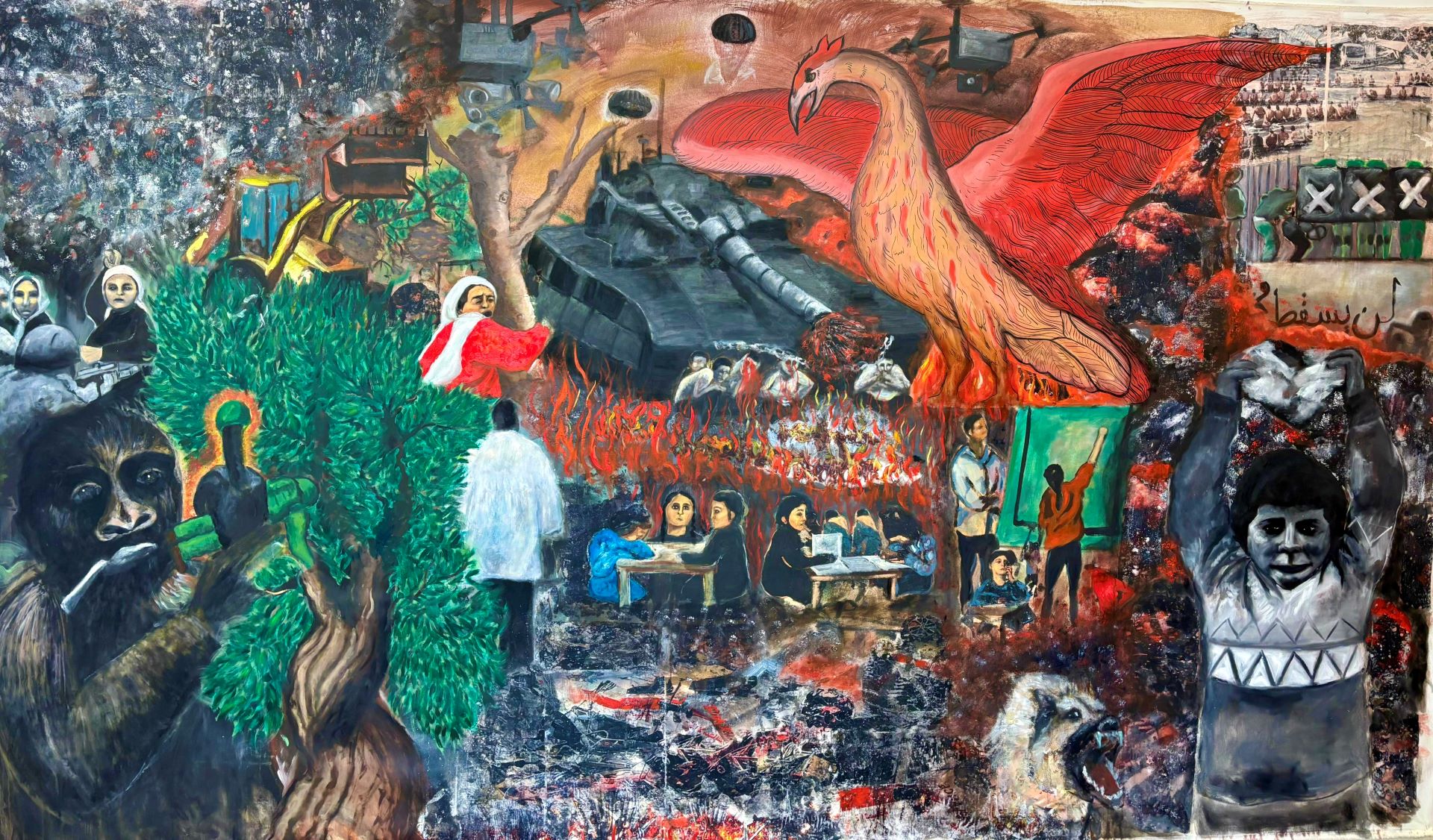
Yet her ascent has been accompanied by the complex dynamics of recognition. “I never imagined this kind of recognition in a city like London, especially coming from Gaza,” she admits. “This moment feels like a continuation of my journey, both personal and political.”
As a young woman carrying the weight of collective memory, she is mindful of how narratives are shaped: “I’m cautious of being reduced to a symbol, it can strip away the complexity of who we are. I want to be recognized not just as a representative, but as an artist in my own right, shaped by my experience.”
Mattar’s practice draws on instinct and emotional memory. “I often paint from memory, especially faces and moments that have stayed with me. Painting is also a kind of ritual for me… a conversation between my past and present, between memory and imagination.”
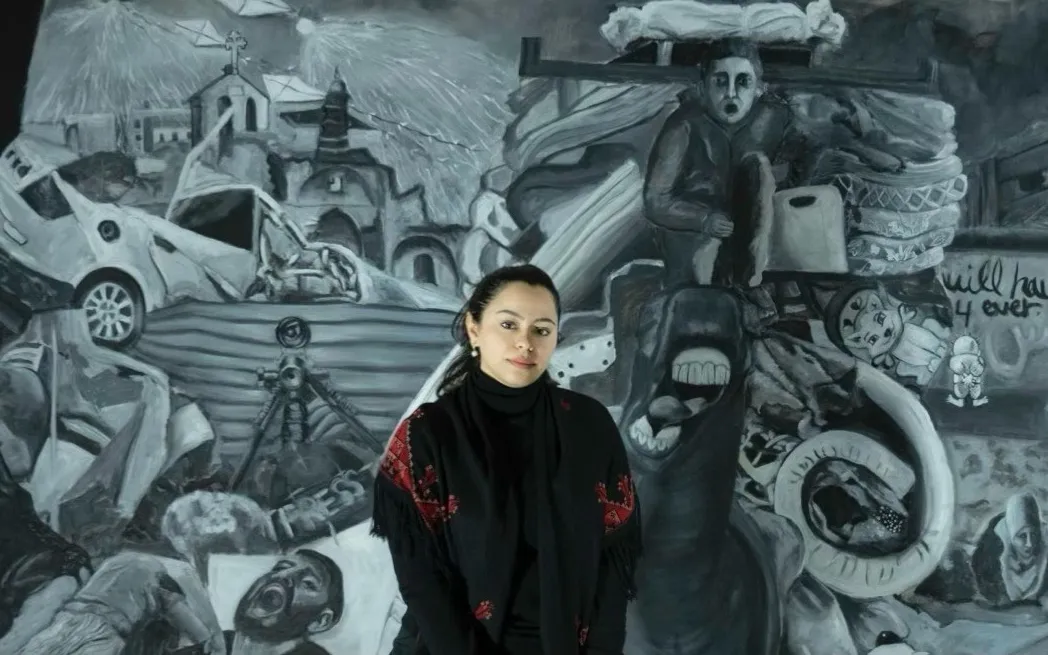
She’s aware of how the cultural context shifts perception. “In Gaza, my art is deeply personal and rooted in daily reality, but in the UK, people sometimes interpret it through different political or cultural lenses,” she says. “It makes me think about how art can carry multiple meanings depending on context.”
Despite the burden of representation, Mattar continues to speak, through colour, form, and voice, for those who cannot. “Carrying Gaza with me is both a responsibility and a weight. I feel the urgency to speak for those who can’t, to show the humanity behind the headlines.”
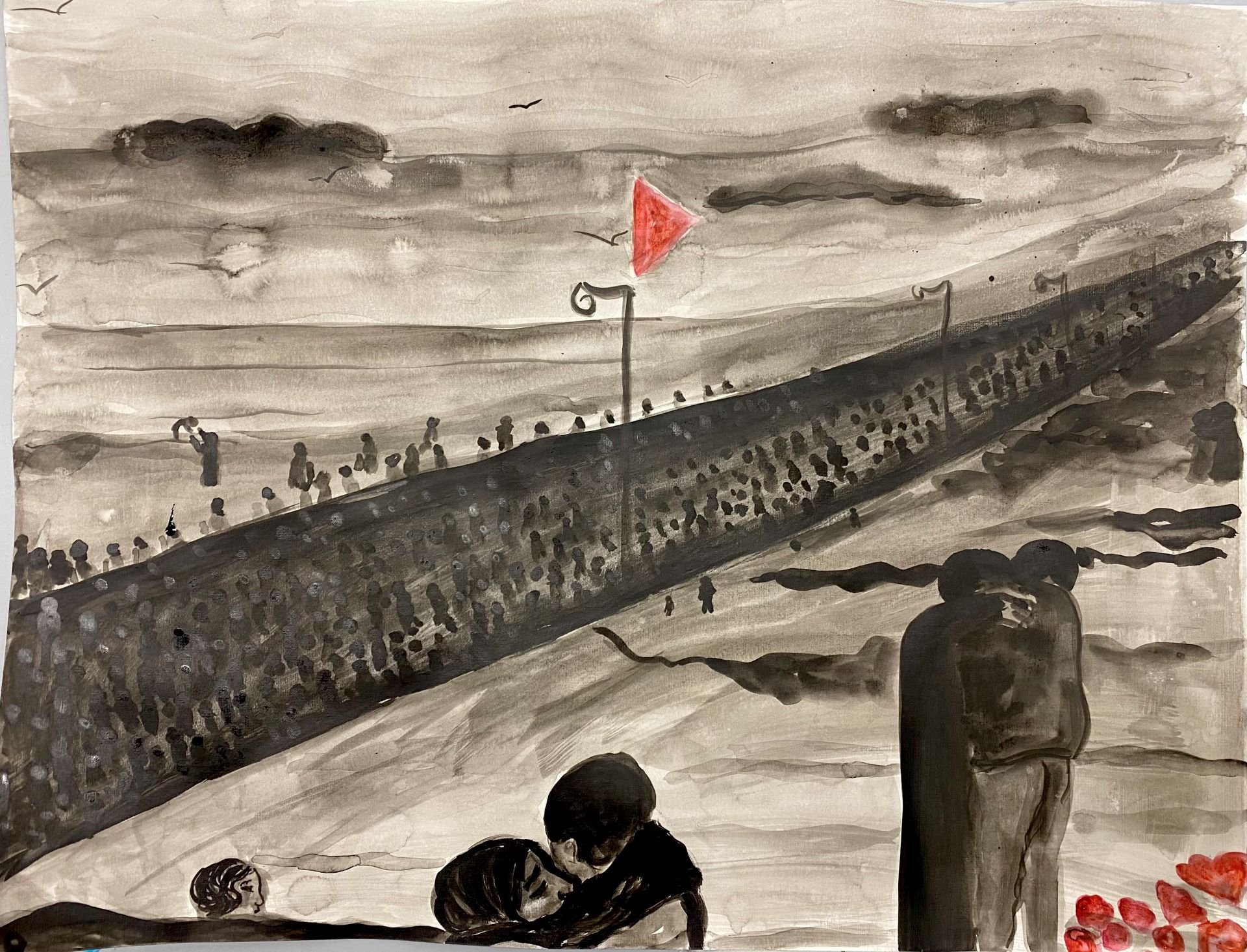
Looking forward, she hopes this moment opens doors. “Palestinian artists deserve space to be seen for the depth and range of their work,” she says. “Right now, I’m in conversation with the memories and stories of Gaza… It’s about holding onto humanity in difficult times.”
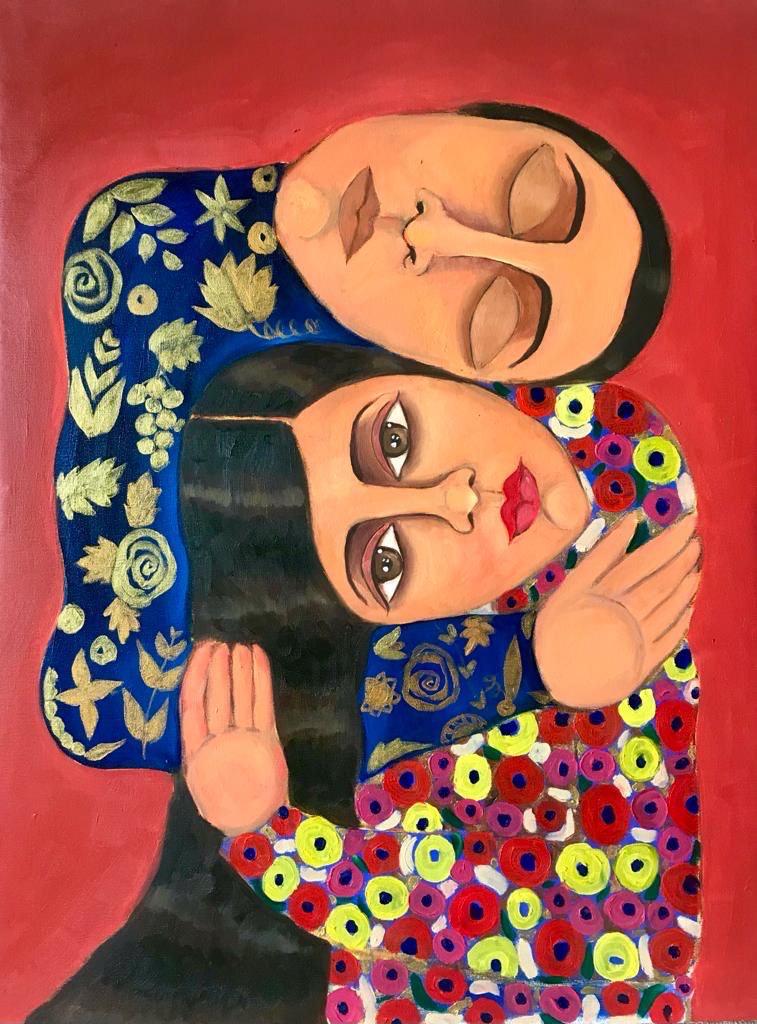
To other artists from Gaza, the diaspora, and beyond, she offers this: “Your art is resistance, healing, and a way to reclaim your identity. Believe in yourself and your story, because it matters.”
And if this moment had a voice? It would speak a single, powerful word: صبر (sabr). “Patience to endure, to resist, and to hope despite the hardships.”
For more stories of art and culture, like this talk with Malak Mattar, visit our dedicated archives.
